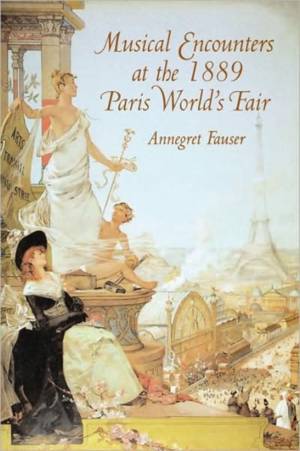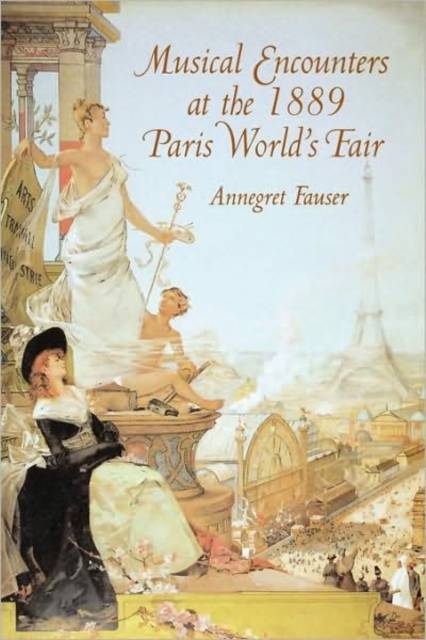
Je cadeautjes zeker op tijd in huis hebben voor de feestdagen? Kom langs in onze winkels en vind het perfecte geschenk!
- Afhalen na 1 uur in een winkel met voorraad
- Gratis thuislevering in België vanaf € 30
- Ruim aanbod met 7 miljoen producten
Je cadeautjes zeker op tijd in huis hebben voor de feestdagen? Kom langs in onze winkels en vind het perfecte geschenk!
- Afhalen na 1 uur in een winkel met voorraad
- Gratis thuislevering in België vanaf € 30
- Ruim aanbod met 7 miljoen producten
Zoeken
Omschrijving
The 1889 Exposition Universelle in Paris has become famous as a turning point in the history of French music, and modern music generally. For the first time, Debussy and his fellow composers could be inspired by Javanese gamelan music, while the Russian concerts conducted by Rimsky-Korsakov brought recent music by the Mighty Five to Parisian ears. But the 1889 World's Fair had much wider musical and cultural ramifications; one contemporary described it as a "gigantic encyclopedia, in which nothing was forgotten." Music was so pervasive at the 1889 Exposition Universelle that newspaper journalists compared the sonic side of the affair to a "musical orgy." Musical encounters at the fair ranged from bandstand marches to folk and non-Western ensembles to symphonic and operatic premieres by Massenet to the mass-marketed Edison phonograph. A rich and vivid literature (from newspaper columns to memoirs that are plumbed here for the first time) comments about this sonic landscape, reflecting the reactions and responses of composers (Saint-Saëns), writers (Judith Gautier), and journalists (Gaston Calmette). Musical Encounters at the 1889 Paris World's Fair explores the ways in which music was used, appropriated, exhibited, listened to, and written about during the six months of the Exposition Universelle. It thereby also reveals the role and the sociopolitical uses of music in France and, more generally, Europe during the late nineteenth century. Annegret Fauser is associate professor of music at the University of North Carolina at Chapel Hill. Her many publications include books on French Wagnerism, Massenet's opera Esclarmonde, and French orchestral songs from Berlioz to Ravel.
Specificaties
Betrokkenen
- Auteur(s):
- Uitgeverij:
Inhoud
- Aantal bladzijden:
- 416
- Taal:
- Engels
- Reeks:
- Reeksnummer:
- nr. 32
Eigenschappen
- Productcode (EAN):
- 9781580461856
- Verschijningsdatum:
- 15/10/2005
- Uitvoering:
- Hardcover
- Formaat:
- Genaaid
- Afmetingen:
- 161 mm x 236 mm
- Gewicht:
- 830 g

Alleen bij Standaard Boekhandel
+ 515 punten op je klantenkaart van Standaard Boekhandel
Beoordelingen
We publiceren alleen reviews die voldoen aan de voorwaarden voor reviews. Bekijk onze voorwaarden voor reviews.









